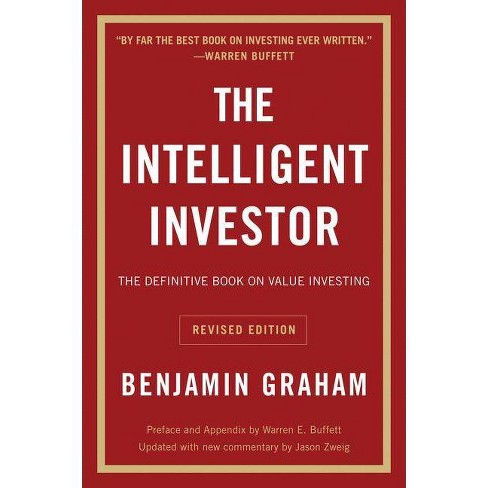May I first start by saying, few nations in history have had such a tragic, yet naturally beautiful, dignified, and proud history. It was an honor to learn about Easter Europe’s history through the lens of such a timeless and knowledgeable writer
 First a little bit about the author. James A Michener is an American classic author who wrote dozens of books throughout his lifetime. He passed away in 1997 at the age of ninety. His books are mainly novels in the Anthropological fiction sub genre. In summary, Michener takes a region or place in our world and goes back a thousand years, to before you knew anything about that particular place, and starts to build a narrative based on made up characters. His books end up being about 85% factual history mixed with 15% of the narrative liberties taken to make a cohesive story which spans hundreds if not thousands of years.
First a little bit about the author. James A Michener is an American classic author who wrote dozens of books throughout his lifetime. He passed away in 1997 at the age of ninety. His books are mainly novels in the Anthropological fiction sub genre. In summary, Michener takes a region or place in our world and goes back a thousand years, to before you knew anything about that particular place, and starts to build a narrative based on made up characters. His books end up being about 85% factual history mixed with 15% of the narrative liberties taken to make a cohesive story which spans hundreds if not thousands of years.
Michener himself was an avid traveler in his lifetime (which I have done and admire greatly), and I believe he was in the Navy during world war 2 and from his journals and letters he ultimately penned one of his first and most popular books “Tales from the South Pacific”, which I have yet to read. This is how he generally makes the material for his books it would seem. His research usually involved living and absorbing the places he would then write about. For Poland he spent much time in Eastern Europe and took great care to piece together what was ultimately a region with a shattered history.
I was drawn to his style of writing because of his use of language which is classic but not olde.. it was easy to read and very few times did he use overly elegant words which I had to look up. The hardest part of reading his books is the Languages and names of the characters which I often times had no idea how to pronounce properly. This small detail, of course, was not enough to detract from the Majesty of the tale he weaves.
In Poland, Michener outlines the chapters so the reader has a sense of what is actual history and what is fictional. He creates three family lines One noble, one middle class gentry, and one peasant. He then proceeds to introduce them briefly before launching you almost one thousand years back in time to when these characters great, great, great on an on, ancestors lived.
It was almost as if I was teleported to the beautifully barren lands of Eastern Europe. I could feel and see the lush forests and serene rivers where the characters family lines originated from. In all this beauty comes the tragedy and triumph of a country that never really had central leadership and was often the scapegoat of other nations greed, anger, and mistrust.
The story takes the reader from when the barbarians and sons of Genghis Khan would terrorize the villages and castles, through the tumultuous crusades when Poland was terrorized even when they preyed to the same gods as their oppressors.. all the way to the inevitable Nazi occupation and through the subsequent Holocaust.
My breadth of knowledge about this country stopped in World War 2. I Personally have been to Poland and the infamous town of Oswiecim, which the Nazis named Auschwitz.. I have been to Birkenau, one of the Nazis most “efficient” death camps. Needless to say traveling through the country and taking in physically and directly, some of that tragedy.. When I found out about this Author and then discovered that he had written a book about this countries history I bought it without a second guess. I’m proud that I did.

By far one of the more chunky books I have ever read up there with Shantaram, i believe there about 650+ pages. However don’t be intimidated by the size. The tale that Michener weaves is so intriguing and full of knowledge that the pages seem to melt away and I would read till three or four in the morning before I would even notice the time.
Micheners books are definitely for people who enjoy literature. His books are mostly all literary Epics, in scope, and Mastery in content. His Pulitzer Prize winning stories are beautifully created within the confines and ruthless happenings of
History. I recommend his books to anyone who likes or loves history, as well as large and very detailed novels. Despite the length of the story he wraps up all of the timelines and Ancestory so well that it’s hard to tell it was a seven hundred page book.
I will undoubtedly be reviewing many of James A, Michener books. Stay tuned and feel free to comment if you have any favorites or recommendations!
Much Love, as always, thank you for braving the bottomless blog.





 First a little bit about the author. James A Michener is an American classic author who wrote dozens of books throughout his lifetime. He passed away in 1997 at the age of ninety. His books are mainly novels in the Anthropological fiction sub genre. In summary, Michener takes a region or place in our world and goes back a thousand years, to before you knew anything about that particular place, and starts to build a narrative based on made up characters. His books end up being about 85% factual history mixed with 15% of the narrative liberties taken to make a cohesive story which spans hundreds if not thousands of years.
First a little bit about the author. James A Michener is an American classic author who wrote dozens of books throughout his lifetime. He passed away in 1997 at the age of ninety. His books are mainly novels in the Anthropological fiction sub genre. In summary, Michener takes a region or place in our world and goes back a thousand years, to before you knew anything about that particular place, and starts to build a narrative based on made up characters. His books end up being about 85% factual history mixed with 15% of the narrative liberties taken to make a cohesive story which spans hundreds if not thousands of years.

 By: Gregory David Roberts
By: Gregory David Roberts